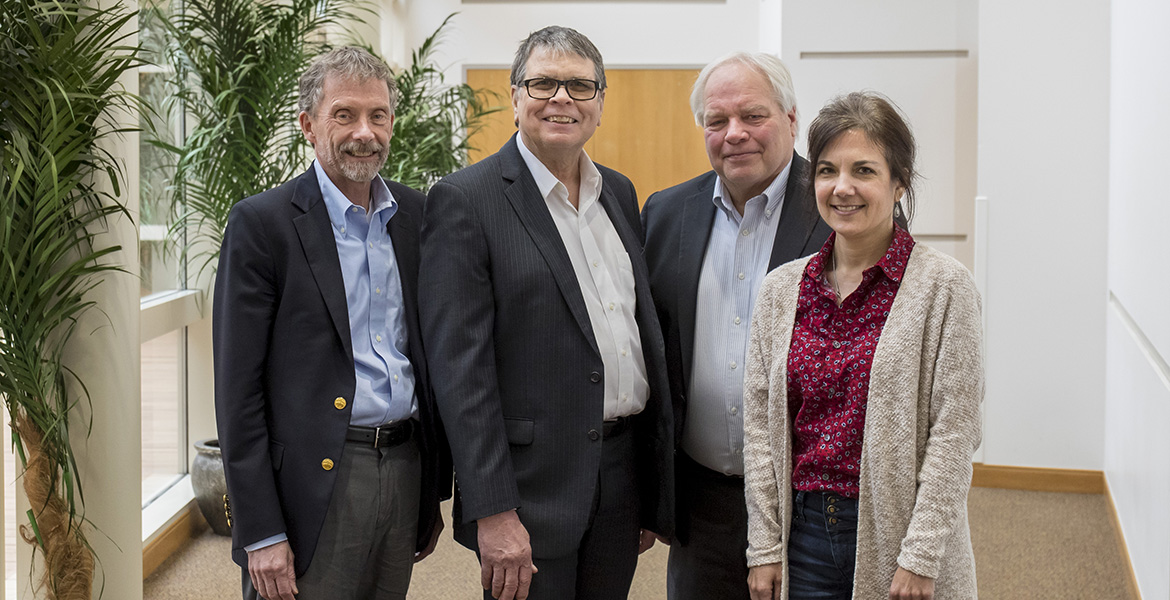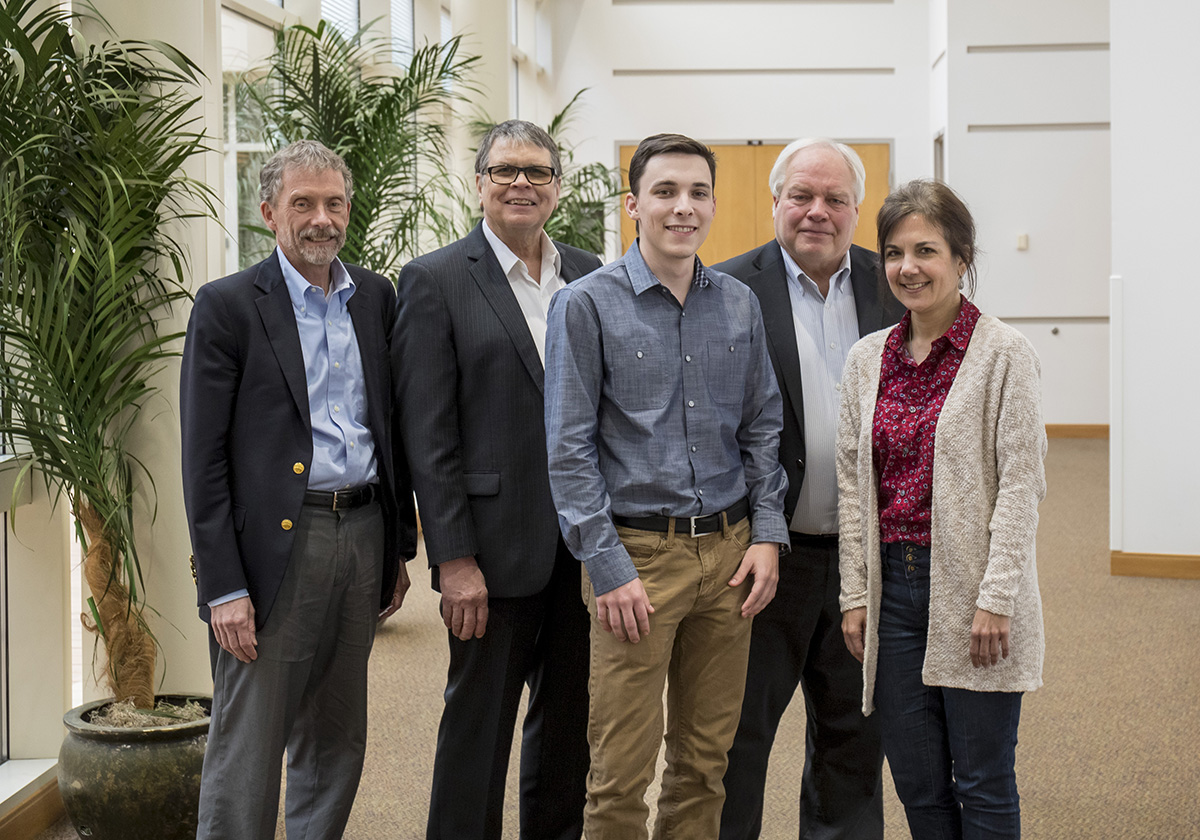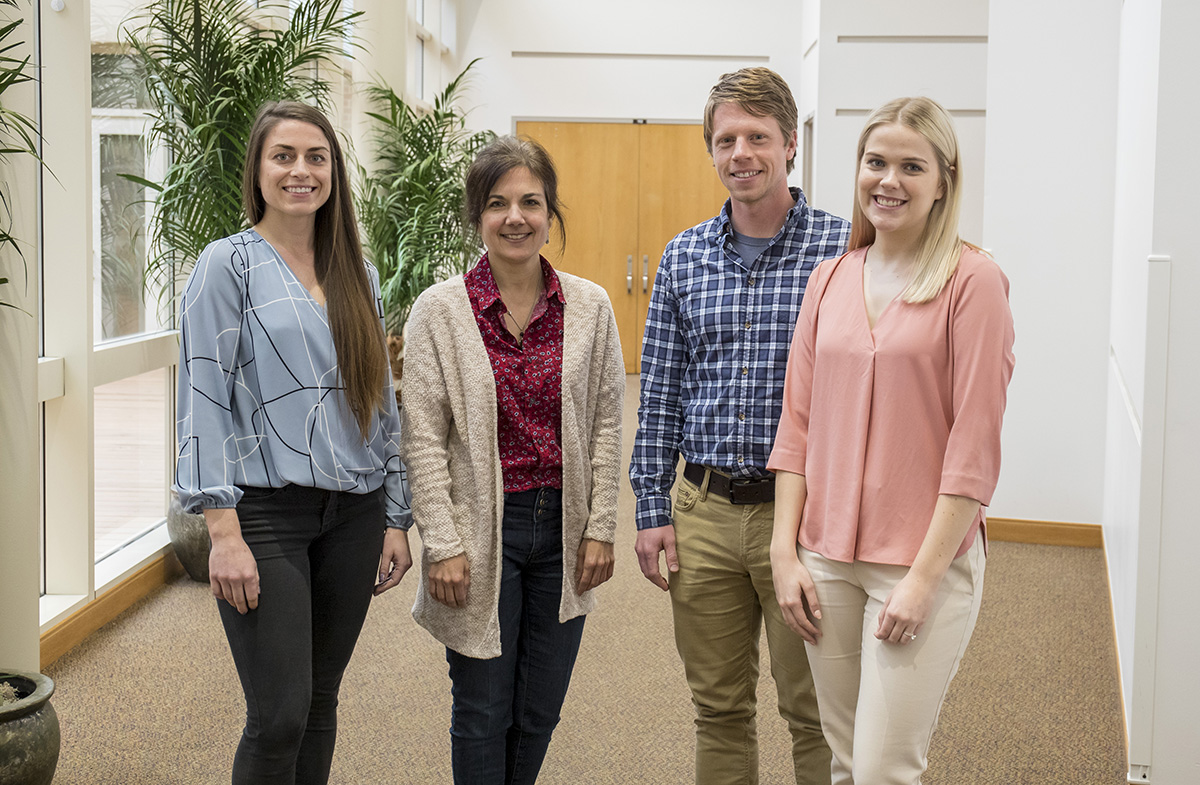
Interdisciplinary Toxicology Symposium held at OSU
Monday, April 1, 2019
Oklahoma State University’s Center for Veterinary Health Sciences recently held the Annual Interdisciplinary Toxicology Symposium at Wes Watkins Center including the 19th Annual Sitlington Lecture in Toxicology. Coordinated by Carey Pope, PhD, Regents Professor and Sitlington Chair in Toxicology, the Symposium featured a poster session, presentations by interdisciplinary graduate fellows, and three outside guest speakers, Steven Bradbury, PhD, Tammy Dugas, PhD, and Jim Klaunig, PhD.
Dr. Steve Bradbury is an international expert on pesticide policy and regulation. His research interests focus on crop protection and pollinators. He presented “Can we grow crops and monarch butterflies? Assessing risks of insecticides to monarch populations at the landscape scale.” Bradbury is a Professor of Environmental Toxicology in the Departments of Natural Resource Ecology and Management and Entomology at Iowa State University.
Dr. Tammy Dugas is a Professor of Pharmacology and Toxicology and the Interim Head of the Department of Comparative Biomedical Sciences at Louisiana State University School of Veterinary Medicine in Baton Rouge. Her research interests focus on cardiovascular toxicity and development of drug-coated devices to improve vascular function. She presented “Inhalation of airborne particulates containing environmentally persistent free radicals promotes cardiovascular disease.”
Dr. Jim Klaunig, a recognized expert in mechanisms of carcinogenesis, presented the 19th Annual Sitlington Lecture in Toxicology, “Current understanding of chemical carcinogenesis.” Klaunig is a Professor of Environmental Health at Indiana University.
“Dr. Klaunig’s 40 years of experience allowed him to do an excellent job covering the history of chemical carcinogenesis up to his current work, which focuses on peroxisome proliferator-activated receptor signaling in relation to carcinogenesis and translation from animal models to humans,” said Pope.
“A take home message from that work is that mechanistic studies are important in determining whether cancer detected in animal models is likely relevant in humans,” continued Pope. “In most cases, there is general agreement that human carcinogens are detected in animal studies. In some cases, the biology is different and the animal study findings may not be relevant. In the case of Dr. Klaunig’s work, peroxisome proliferators were shown to be carcinogenic in rodent studies but the same signaling processes were not relevant in humans, reducing the concern that drugs or environmental chemicals that work through those signaling pathways would be a problem for inducing cancer in humans.”

The Symposium concluded with a reception for the eight Interdisciplinary Toxicology Program (ITP) fellows and their guests, the visiting speakers, and OSU faculty from Physiological Sciences, Integrative Biology, Chemical Engineering, and Biochemistry and Molecular Biology, which presented an opportunity for a lively exchange among students, interdisciplinary faculty, and leading scientists.
Six undergraduate students and 22 graduate students participated in the poster session. Two students were affiliated with a local toxicity testing laboratory. One student was from the Department of Poultry Science at the University of Arkansas. One graduate student had advisors from Physiological Sciences, Forensic Sciences, and the Federal Aviation Administration laboratory in Oklahoma City. OSU departments represented by other students included Physiological Sciences, Integrative Biology, Microbiology, Chemistry, Physiology and Pharmacology, and Forensic Sciences.

Judged by the three guest speakers, the top three poster session participants in the undergraduate and graduate categories respectively each received cash awards:
- Taylor Walton (mentor/advisor, Jason Belden) – 1st place $200
- Jeffrey Krall (mentor/advisor, Chris Goodchild and Sarah Durant) – 2nd place $150
- Thomas Black (mentor/advisor, Matteo Minghetti) – 3rd place $100
- Chris Goodchild (advisor, Sarah Durant) – 1st place $200
- Sarah Hileman (advisor, Jason Belden) – 2nd place $150
- Kirstin Hester (advisor, Carey Pope) – 3rd place $100
The following ITP graduate fellows shared their research in brief platform sessions:
- Bobby Bowser, Integrative Biology
- Christopher Goodchild, Integrative Biology
- Kirstin Hester, Veterinary Biomedical Sciences
- Sarah Hileman, Integrative Biology
- Md Ibrahim, Integrative Biology
- William Mimbs, Integrative Biology
- Amie Schweitzer, Physiology and Pharmacology
- Justin Scott, Integrative Biology
For more information about the Interdisciplinary Toxicology Program at Oklahoma State University, please visit OSU Toxicology.
